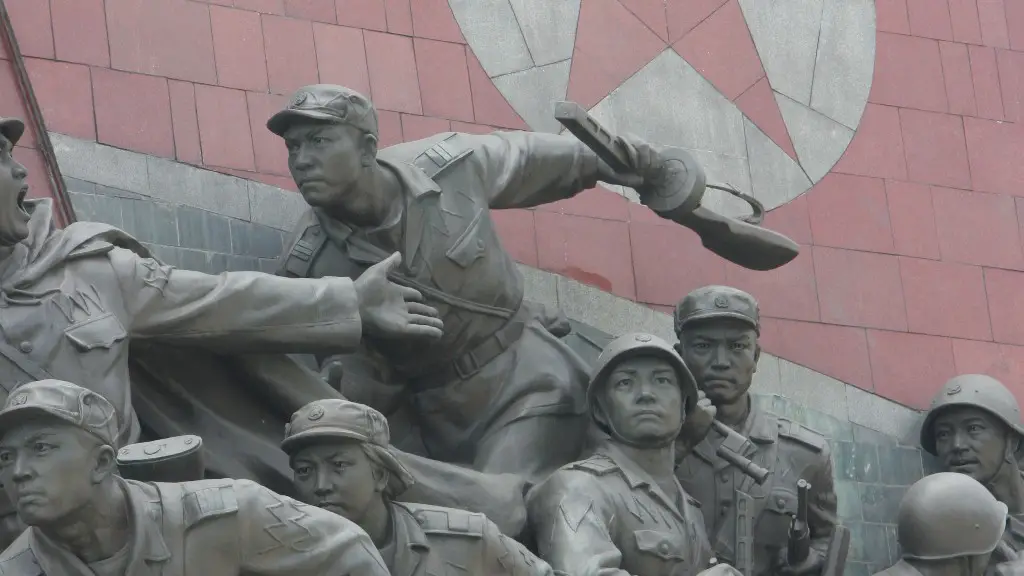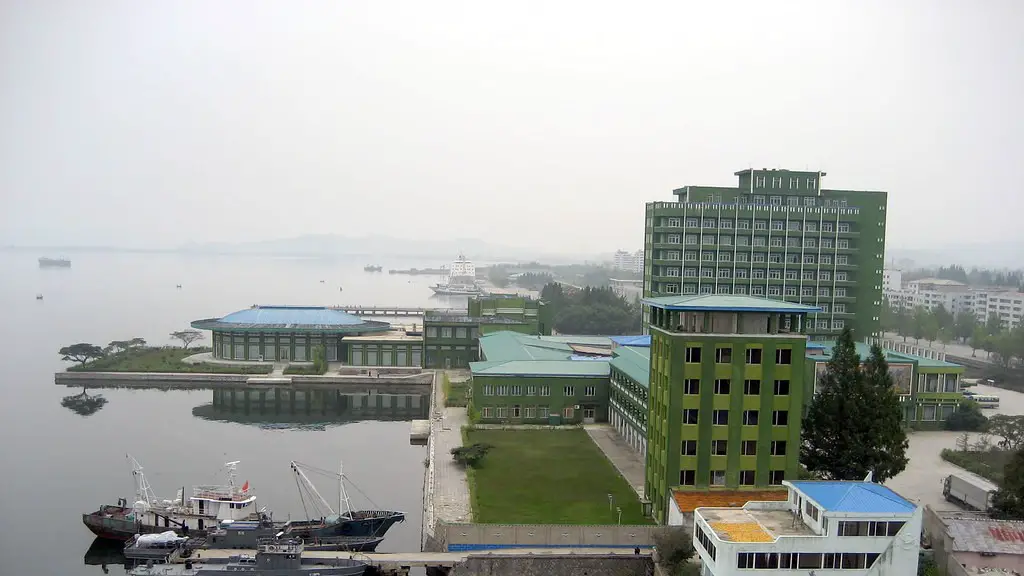Background Information
The United States has long been considered the world’s superpower, and although recent political upheaval and shifting dynamics have diminished our standing, many still consider us the leader of the free world. With our vast military preeminence and economic strength, we are often seen as the standard-bearer in international relations, and we are often tasked with the job of protecting others from aggression or instability. One such threat that has loomed over the international community for decades is North Korea. Aggressively championed by its leader Kim Jong-un, North Korea presents a clear threat to the safety of the global community and especially to the United States.
Geopolitical Context
North Korea’s nuclear and ballistic missile programs have been a major source of contention in East Asian affairs. Tensions have been especially high since 2017 when an exchange of hostile rhetoric between President Trump and Kim Jong-un stoked the flames of an already hostile diplomatic climate. The drastic shifts in NK-US relations has had a marked effect in East Asian geopolitics, with US allies like South Korea and Japan scrambling to reassess their stance towards North Korea in order to ensure their own safety.
Cognitive cauldron of the situation has been further complicated by the actions of North Korea and its diplomatic allies China and Russia. North Korea has continued to invest heavily in its electronic warfare arsenal and has used this capacity to disrupt many international negotiations. The country’s capabilities have been consistently improving, so much so that experts think that North Korea might even have the capacity to launch a nuclear attack on the United States.
The US Response
In response to North Korea’s aggression, the US has begun to pursue a more active policy of containment in regards to the Hermit Kingdom. This policy includes the largest US military mobilization in years as well as a number of economic sanctions placed upon North Korea.
On the diplomatic front, the US has maintained its commitment to the UN and G8 and worked to shore up the diplomatic front by developing relationships with the other countries involved in the conflict. The US has also worked to influence the international community and regional governments to put pressure on North Korea in order to prevent further conflict.
On the economic front, the US has implemented a number of sanctions against North Korea in order to try and limit the nation’s capacity for aggression. These sanctions have taken the form of restrictions on the import of certain goods, a ban on certain financial transactions, and pressure on North Korea’s diplomatic allies.
Analysis
It is clear that the US is keen to protect itself from the threat of North Korea, and with good reason; the Kim regime’s ruthlessness, unpredictability, and heavy investment into electronic warfare make them a serious risk for any country who wants to protect their citizens and their interests. The US has responded to this threat with a combination of economic and diplomatic approaches which may be effective in the short term but will likely not be sufficient in the long run.
The US needs to develop a strategy that includes mobilizing international cooperation, utilizing US economic and military power (including missile defense systems), and dissuading North Korea from taking further aggressive steps. While it is impossible to predict the outcomes of these strategies, experts agree that their long-term effects in curbing North Korea’s aggression could prove very effective.
US Plans to Contain North Korea
The US is currently developing a number of plans to contain North Korea and ensure the safety and security of the US and its allies. One such plan is the deployment of more US forces to the Korean Peninsula in order to maintain peace and stability. This move is meant to be a deterrent as well as a sign of solidarity to our allies. In addition, the US is looking for ways to impose more economic sanctions on North Korea in order to limit their capacity for aggression, as well as forming a united front with Japan and South Korea in order to present a unified front to North Korea.
International Cooperation
The US is also actively working to engage in diplomatic dialogue with North Korea and other members of the international community in order to get them to agree to de-escalate the situation. In addition, the US is looking for ways to strengthen economic ties with North Korea in order to encourage them to follow international standards and norms. As part of this effort, the US is seeking to build a stronger alliance with China, the country with the most influence over the regime in Pyongyang.
Conclusion
The conflict between the United States and North Korea has been a long-running saga, and it is clear that if the US wants to protect itself, it must take a multi-faceted approach to containing North Korea. This approach must focus on international cooperation, economic sanctions, diplomatic dialogue and strengthening alliances in the region in order to present a united and powerful response to North Korea. While these approaches may bear fruit in the long term, the US must remain vigilant in the mean time.

